Sewing is not only enjoyable, but also profitable. It is a service based skill that can be described as an art, a hobby, and a technical craft. For those who have decided to make sewing, dressmaking, tailoring, costume-making, or other sewing based services a career, you might want to know if this extremely useful vocation can be considered a trade.
What is a trade?
Before we can determine if sewing qualifies as a trade, lets talk about what a trade even is.
According to Goodwin University:
Trade jobs, generally speaking, are jobs that require advanced training and technical skills; however, training is acquired through means other than a bachelor’s degree.
Some common examples of careers that are considered trade jobs include: nurse, electrician, machinist, dental hygienist, contractor, etc.
Some trade jobs do have bachelor’s degree programs for those who want to be able to learn the trade as well as graduate from a college or university, however most of them do not require a bachelor’s degree.
I designed this free printable poster called “Sewing Tools of the Trade”, which you can download here! It illustrates several of the common sewing tools and objects sewists use daily.
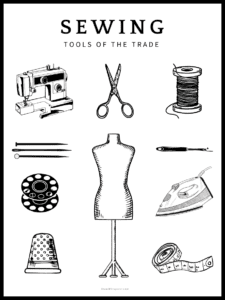
Is sewing a trade?
Sewing can qualify as a trade due to the multiple alternative paths towards certification or mastery it offers. Although some colleges and universities offer courses or programs involving sewing, the craft is more commonly learned through apprenticeships, specialty trade schools, or self-education.
There are many technical colleges around the country that offer sewing programs and courses. Here are a few examples:
- Sewing Program at Lake Washington Institute of Technology
- Industrial Sewing at Caldwell Community and Technical College
- Beginning and Advanced Sewing at Bridgerland technical College
At a traditional university, sewing is usually included as part of a larger degree field such as fashion design or costume design.
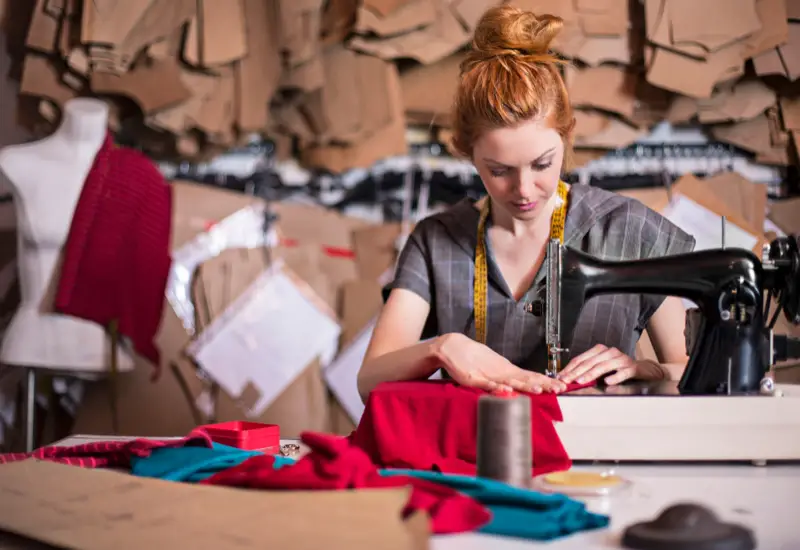
It’s worth nothing that although sewing is a technical vocation, it does not require the same level of advanced training a nurse, electrician, or dental hygienist does.
When you learn to sew, you will have to learn all the technical names and parts of your sewing machine, as well as how to use them! (Make sure to download your free sewing machine diagram!)
We’ve determined that sewing is in fact a trade, but here’s another interesting question: Is sewing a skill or a talent?
In truth, sewing is both a skill and a talent! The techniques of sewing can be learned by anyone, but some individuals are born with an innate talent for designing, stitching, and creating with a sewing machine.
Where else can you learn how to sew?
Beginner sewing is not very hard, which means that you can quickly learn the basic skills in many ways! You don’t have to enroll in a technical college to learn to use a sewing machine.
One great way to learn to sew is through a local sewing class. There are often sewing classes offered at craft shops and community workforce workshops. You can also hire a private sewing tutor.
Take a look at my in depth guide of how to find a sewing class near you!
What is the sewing Trade Called?
There are many terms you can use to refer to someone who sews, particularly depending on what and how they sew.

A seamstress, a sewist, seamster, and a tailor are all common general titles. You might also call someone who sews “a sew-er” not to be confused with a sewer (that was supposed to be funny). An antique term for seamstress is sempstress.
Here are a few more synonyms for a seamstress, keep in mind that they all differ slightly in their usage based on what it is the person is actually creating.
- Costumer (a person who makes theatrical costumes)
- Needleworker (a person who works with a needle, can also refer to embroidery, crochet, and knitting)
- Dressmaker (a person who makes women’s clothes, particularly dresses)
- Modiste (someone who makes fashionable women’s clothing)
What kind of sewing jobs can you get?
The various titles for a person who sews hints at the kind of sewing jobs you can get!
There are many types of sewing occupations, including options that can be done in your own home! Here are a few types of jobs you can get related to sewing:
- Tailor
If you love to make, alter, or mend clothing then becoming a tailor might ‘be a great fit’ for you. (pun intended!) Tailors can do anything from altering formal gowns, to hemming jeans. You can work at a tailoring shop, dress shop, or even tailor clothes from home.
- Fashion Designer
Chances are you have heard about the fashion designers on TV, but you might not have considered that behind every article of clothing there is a designer and maker!
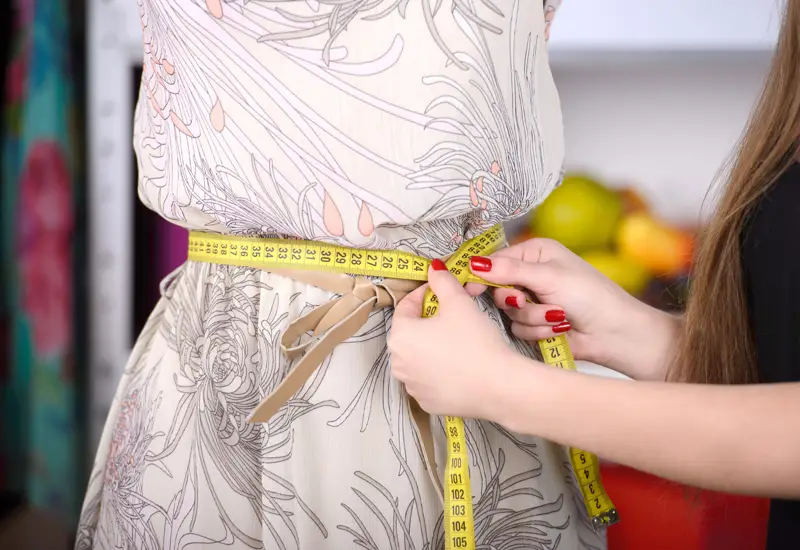
If you have a creative side and want to learn to drape, draft, and practice the artistry of sewing, becoming a fashion designer could be for you!
- Industrial Sewing Machine Operator
You can also get a job in a warehouse, factory, or production center as an industrial sew-er. The options for industrial sewing jobs are many!
Every textile product has to be sewn by someone. From pillows, home goods, and blankets, to vests, backpacks, or even hats. If you know how to sew and have an eye for detail, this job could be interesting for you!
- Quilter
Quilting is not just your grandmothers pastime! Professional quilters use their sewing skills to run industrial long arm quilting machines and create beautiful quilts for clients.
Blogger Jennifer Strauser describes becoming a professional quilter and shares some great photographs of the longarm machine on her blog:
“I have boldly taken the next step in my journey as a professional quilter ….The day was great. Plenty of customers wanted to talk to me and watch me play on the shop longarm. I was shocked and thrilled that four quilts got dropped off for me to work on. “
There you have it! All the basics you need to know about if sewing is a trade, where you can learn it, and what to call yourself. Plus, a few ideas about what kind of sewing jobs there are out there!
Are you considering learning the sewing trade? What about it appeals to you?
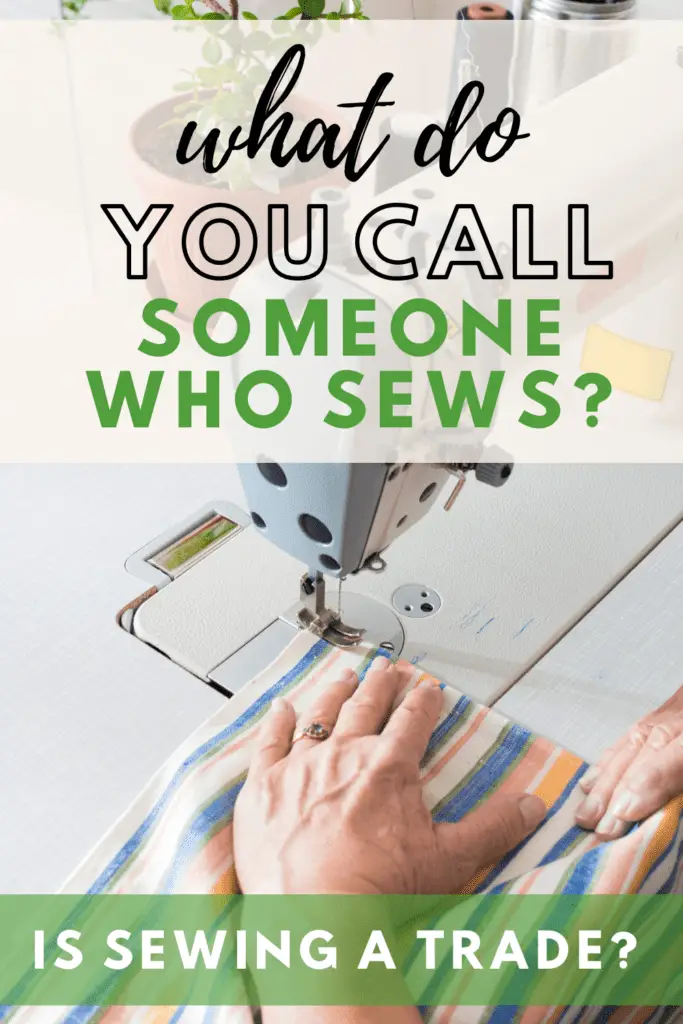

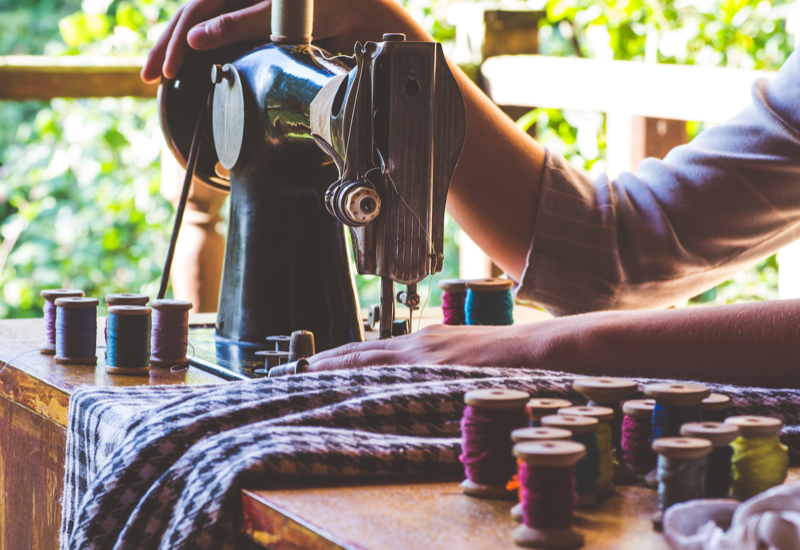
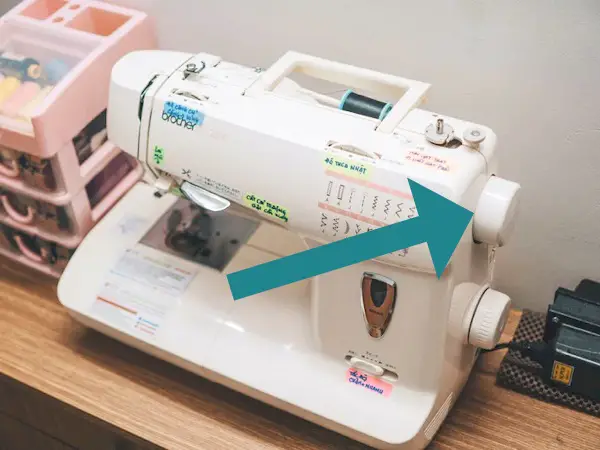


Thanks for your blog, nice to read. Do not stop.
Thanks! I don’t plan on it!